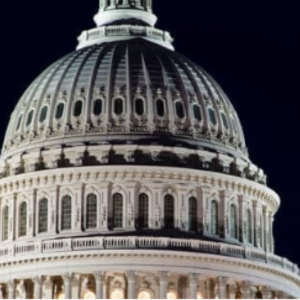How the New Tax Law May Affect Your Charitable Giving

On July 4, 2025, President Trump signed into law a major tax reform package called the "One Big Beautiful Bill Act." While there has been considerable debate about this legislation, as a taxpayer, you need to understand how these changes may directly impact your charitable giving options and the social programs you may rely on. Here's what you need to know.
Good News for Non-Itemizers: You Can Now Deduct Charitable Gifts
If you take the standard deduction ($15,000 for single filers, $30,000 for married couples), you previously couldn't deduct charitable contributions. Beginning in the 2026 tax year, that has changed:
- Single taxpayers: You can now deduct up to $1,000 per year in cash donations to qualified charities
- Married couples filing jointly: You can now deduct up to $2,000 per year in cash donations
Important limitation: Contributions to donor-advised funds (DAFs) do not qualify for this deduction.
What this means for you: If you are already giving to charity, you can now reduce your tax bill. If you were not already giving because you could not deduct it, this may create a new incentive for you to donate.
Contact us to schedule a consultation for personalized guidance.
Changes for Itemizers: New Hurdles and Limits
If you itemize your deductions, the rules have become more restrictive effective in 2026:
New Minimum Threshold
You can only deduct charitable contributions that exceed 0.5% of your adjusted gross income. For example, if your Adjusted Gross Income (AGI) is $100,000, only donations over $500 are deductible.
Permanent 60% Limit
The rule allowing you to deduct up to 60% of your adjusted gross income for cash gifts to public charities is now permanent (this was previously temporary).
Reduced Deductions for High Earners
If you are in the highest tax bracket, your total itemized deductions will be reduced, potentially including your charitable deductions.
What this means for you: If you itemize, your charitable tax benefits may be reduced, especially if you are a smaller donor or high earner.
Corporate Taxpayers: New Minimum Giving Requirement
If you own a business, effective in 2026, there is now a floor for charitable deductions: you can only deduct contributions that exceed 1% of your taxable income. The previous 10% maximum limit remains unchanged.
What this means for you: Small business charitable contributions may no longer be deductible if they do not meet this threshold.
New Tax Credit for Education Giving (Starting 2027)
Beginning January 1, 2027, you may be eligible for a valuable new tax credit:
- Credit amount: Dollar-for-dollar tax credit up to $1,700
- Eligible donations: Gifts to qualified K-12 scholarship organizations
- State participation required: Your state must opt into the program
What this means for you: This is better than a deduction—it is a direct reduction of your tax bill. If your state participates and you support educational scholarships, this could provide significant tax savings.
Tax Changes Affecting Organizations You Support
Higher Education
Universities with large endowments will face significantly higher taxes (up to 8% on investment income for schools with endowments over $2 million per student). This could reduce scholarships and financial aid availability.
Nonprofit Leadership
Organizations you support will face a new 21% excise tax on employee compensation over $1 million, potentially affecting their operations and programs.
What You Should Do Now
Review Your Giving Strategy with your BLBB Financial Advisor
- Non-itemizers: Consider increasing charitable giving to take advantage of the new deduction
- Itemizers: Evaluate whether bunching donations into fewer years might be more beneficial
- Business owners: Assess whether your charitable giving meets the new 1% threshold
Plan for 2027
If you are interested in supporting K-12 education, research scholarship organizations in your state and monitor whether your state opts into the tax credit program.
Prepare for Broader Changes
Consider how reduced social services might impact your community and whether you want to increase support for local food banks, healthcare clinics, or other safety net organizations.
Consult Professionals
Given the complexity of these changes, work with your BLBB financial advisor and tax professional to develop a strategy that continues to maximizes your tax benefits while supporting the causes you care about.
Conclusion
The "One Big Beautiful Bill Act" creates both opportunities and challenges for taxpayers. While non-itemizers gain new charitable deduction benefits and education supporters may enjoy substantial tax credits starting in 2027, itemizers face new restrictions that could reduce their tax benefits from giving.
Perhaps more significantly, the reduction in federal support for social programs will likely increase demand for charitable services at the same time that some taxpayers' incentives to give are being reduced. This creates a potential gap between community needs and charitable resources.
The key is to understand how these changes affect your specific tax situation and plan accordingly. Whether you are motivated by tax benefits, community needs, or both, strategic planning now can help you maximize your impact while minimizing your tax burden under the new rules.
Investment advisory services are provided by BLBB Advisors, a Pennsylvania-based investment advisor registered with the Securities and Exchange Commission under the Investment Advisers Act of 1940. Additional information about BLBB is available in our current disclosure documents which are available on BLBB’s website (www.blbb.com) or the SEC’s public disclosure database (IAPD) at www.adviserinfo.sec.gov.
BLBB does not provide tax advice. Please consult your personal tax advisor.
x



